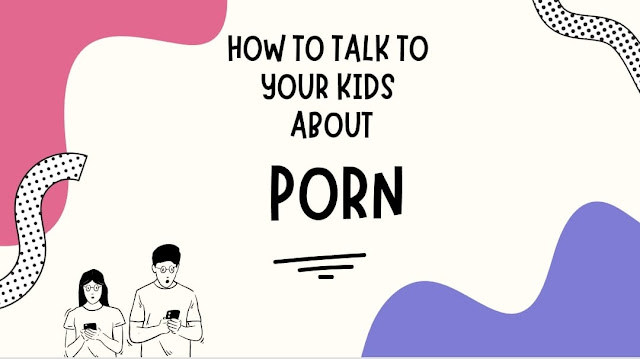Learning to say NO
What happens when we say NO to our children? Will they hate us forever?
These questions haunt the minds of many parents when they face the difficult task of denying their teenager an activity or something that they are very excited about.
In a family school session we were presented with this challenge. On this occasion, it was a concert by a musical group that our sons and daughters loved. The concert was scheduled for a Thursday night, and they had coincidentally been given tickets. However, we, the parents, had to do our best to tell them that they could not attend, since it was a school day and during school hours. I found this exercise more difficult than expected.
All of us present gave different answers, and the truth is that none of us did it completely right. Noemí, the education and psychology expert, provided us with guidelines and tools to address these types of situations more effectively in the future. Ultimately, she explained to us why saying "no" is essential in the education of our children. We must prepare them for the times when life tells them "no." This could be the first rejection from a partner, the first layoff at a job, or even the first apartment you fall in love with and can't afford to rent. Teaching them to tolerate frustration is a valuable skill that, unfortunately, is not taught often enough.
In a family school session we were presented with this challenge. On this occasion, it was a concert by a musical group that our sons and daughters loved. The concert was scheduled for a Thursday night, and they had coincidentally been given tickets. However, we, the parents, had to do our best to tell them that they could not attend, since it was a school day and during school hours. I found this exercise more difficult than expected.
All of us present gave different answers, and the truth is that none of us did it completely right. Noemí, the education and psychology expert, provided us with guidelines and tools to address these types of situations more effectively in the future. Ultimately, she explained to us why saying "no" is essential in the education of our children. We must prepare them for the times when life tells them "no." This could be the first rejection from a partner, the first layoff at a job, or even the first apartment you fall in love with and can't afford to rent. Teaching them to tolerate frustration is a valuable skill that, unfortunately, is not taught often enough.
In our generation, many of us were better prepared for life because our parents told us "no" on many occasions. However, these days, there seems to be a tendency to say "yes" to everything. This may be motivated by the fear of losing the affection of our children or by the desire to provide them with everything we did not have. Sometimes I think we feel guilty for not giving them all the attention they need in this fast-paced world. But in reality, we are raising a generation that may lack skills to deal with rejection and adversity.
I remember a personal episode when I was 12 years old and attended an Alejandro Sanz concert. My parents allowed me to go, on the condition that they would pick me up at 12 midnight. I was excited because I knew all their songs and I was accompanied by friends and some mothers. However, the concert started late and I was only able to enjoy about 5 songs before my parents came to pick me up. At that moment, I felt angry and disappointed, as I was missing out on my dream concert. But, despite my initial anger, my relationship with my parents did not change, and my affection for them remained intact. Over time, I got over my anger and understood the importance of their decisions.
Nowadays, in the school environment, it is increasingly common to find boys and girls who have difficulties accepting "NO". Often, classroom behavior flows smoothly until limits are set or teachers are put in the position of denying behavior. It is at that moment when problems arise. The inability to deal with rejection can have significant consequences in the future, as this lack of skills to manage frustration can trigger more serious problems, such as depression or anxiety.
Teachers and families play a crucial role in providing a safe environment where children can learn to deal with frustration, resolve conflicts in healthy ways, and develop emotional resilience. This prepares children to face a future full of challenges more safely and effectively.
Experience shows me that saying "no" to our sons and daughters, even if it is difficult in the moment, can be a way to give them love and care in the long term.
What do you think about this?
A hug,
Cris
I remember a personal episode when I was 12 years old and attended an Alejandro Sanz concert. My parents allowed me to go, on the condition that they would pick me up at 12 midnight. I was excited because I knew all their songs and I was accompanied by friends and some mothers. However, the concert started late and I was only able to enjoy about 5 songs before my parents came to pick me up. At that moment, I felt angry and disappointed, as I was missing out on my dream concert. But, despite my initial anger, my relationship with my parents did not change, and my affection for them remained intact. Over time, I got over my anger and understood the importance of their decisions.
Nowadays, in the school environment, it is increasingly common to find boys and girls who have difficulties accepting "NO". Often, classroom behavior flows smoothly until limits are set or teachers are put in the position of denying behavior. It is at that moment when problems arise. The inability to deal with rejection can have significant consequences in the future, as this lack of skills to manage frustration can trigger more serious problems, such as depression or anxiety.
Teachers and families play a crucial role in providing a safe environment where children can learn to deal with frustration, resolve conflicts in healthy ways, and develop emotional resilience. This prepares children to face a future full of challenges more safely and effectively.
Experience shows me that saying "no" to our sons and daughters, even if it is difficult in the moment, can be a way to give them love and care in the long term.
What do you think about this?
A hug,
Cris

.jpg)

Comentarios
Publicar un comentario